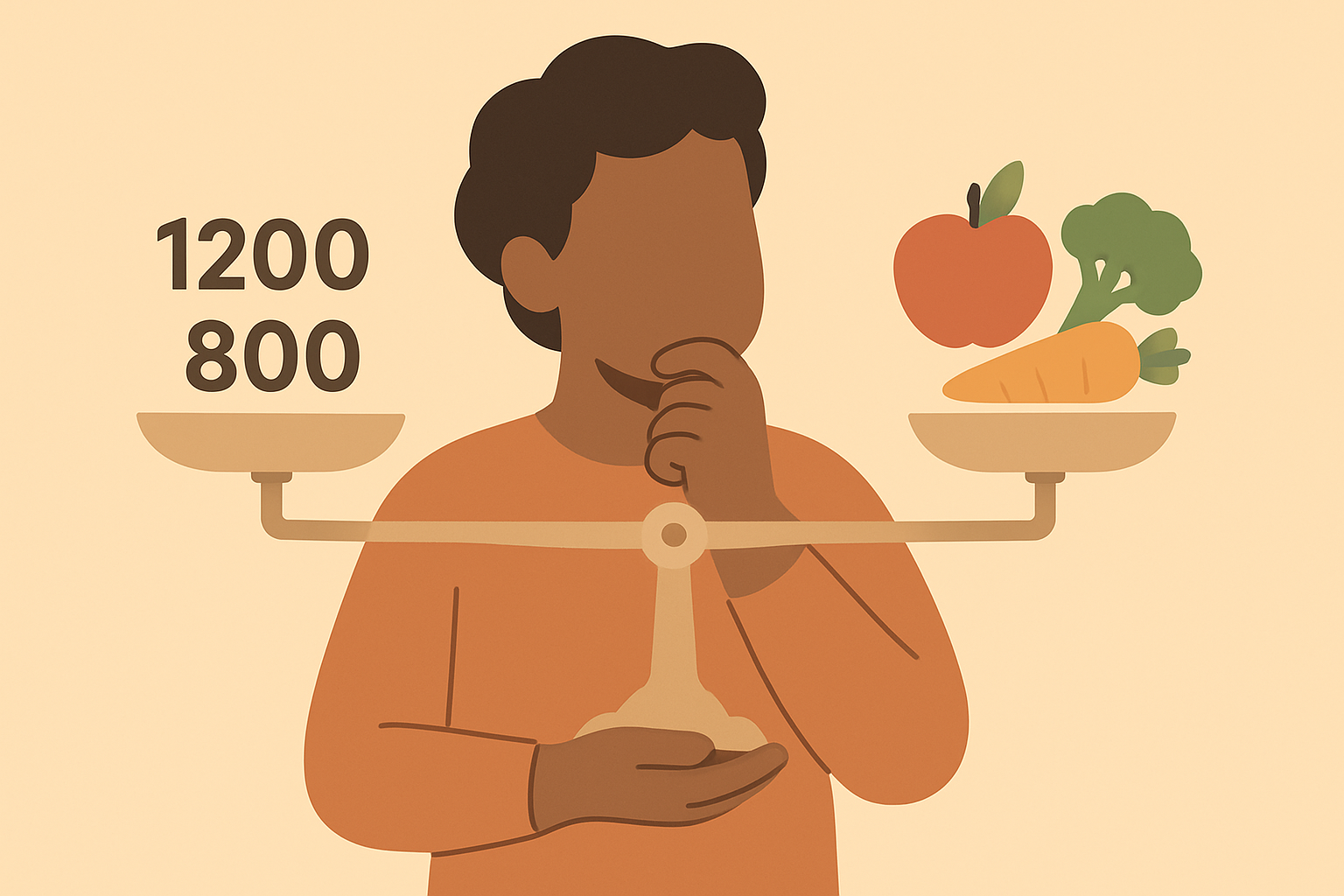
What is Calorie Counting?
Calorie counting involves tracking the number of calories you consume through food and beverages. Many people use this method to monitor their intake more precisely and maintain a caloric deficit, which is crucial for weight loss. While it's a popular approach, it's not the only route to achieving a healthier weight.
How many calories you need depends on various factors such as age, gender, weight, and activity level. By understanding your total daily energy expenditure, you can decide if calorie counting is right for you.
How Does Counting Calories Work?
The basic principle behind calorie counting is the concept of energy balance. Energy balance: It's the relationship between the calories consumed and the calories expended. Achieving a caloric deficit—where you consume fewer calories than you burn—can lead to weight loss. This method requires discipline as it involves tracking all food and beverage intake accurately.
- Pros of calorie counting: Helps in gaining awareness of portion sizes
- Provides structure and accountability
- May lead to more informed food choices
- Cons of calorie counting: Can be time-consuming
- May not address underlying emotional issues or eating habits
- Might lead to an unhealthy obsession with numbers
Alternatives to Calorie Counting
If counting every calorie seems daunting, other strategies might suit your lifestyle better. Flexible dieting, for example, allows you to eat foods you love while still maintaining a nutritional balance that supports weight loss. This approach is less about restriction and more about moderation.
- Focus on whole foods: Prioritize nutrient-dense options like vegetables, fruits, lean proteins, and whole grains to promote fullness and satisfaction.
- Monitor portion sizes naturally: Use guides like the hand portion method to estimate serving sizes without the need for scales and measures.
- Practice intuitive eating: Trust your hunger and satiety cues to guide your food choices. This method encourages mindfulness and can help curb emotional eating.
The Role of Energy Balance in Weight Loss
Understanding energy balance can be pivotal even if you're not counting calories. It's the balance between the calories you consume and burn. While calorie counting is one way to monitor this balance, paying attention to the quality of your diet and your physical activity level can also create the necessary conditions for weight loss.
Engaging in regular physical activity increases your energy expenditure, thereby promoting a caloric deficit. Adjusting food intake to align with your activity levels can help in reaching your weight loss goals without explicitly counting every calorie.
Embracing a Balanced Approach
Weight loss doesn't need to be an all-or-nothing approach centered around calorie counting. Embracing a balanced lifestyle that includes mindful eating practices, moderate physical activity, and a healthy relationship with food can also be effective. Exploring methods like intuitive eating can help you tune into your body's natural hunger signals.
If structured guidance aligns better with your goals, consider exploring flexible dieting concepts to give yourself the flexibility to enjoy varied foods without the strict confines of calorie tracking.
Frequently Asked Questions
Is counting calories the only way to lose weight?
Counting calories is one method to manage weight, but it's not the only option. Understanding energy balance and pursuing mindful eating habits can also be effective strategies.
How can I lose weight without counting every calorie?
Consider using techniques like intuitive eating, focusing on portion control, and understanding the principles of energy balance to guide your weight loss journey.
What is flexible dieting and how can it help?
Flexible dieting involves maintaining balance and allowing for a variety of foods in your diet. This approach can reduce stress around 'good' and 'bad' foods, supporting weight loss and energy balance.
Can intuitive eating help with weight loss?
Yes, intuitive eating can guide you to make healthier choices by listening to your body's cues. It focuses on eating when hungry and stopping when full.